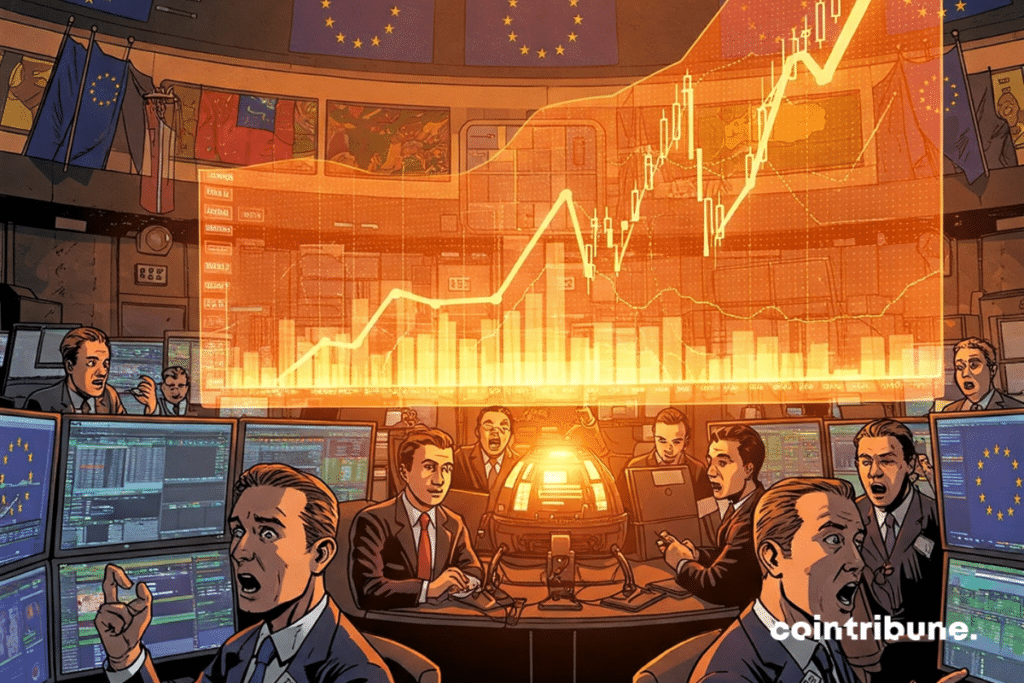ECB Plays Catch-Up as European Markets Pop on Fed’s Pivot—Traders Yawn at Predictable Central Bank Theater
Another day, another coordinated central bank dance. European indices rallied after the Fed’s long-telegraphed rate decision, proving once again that markets move on anticipation—not action—of monetary policy shifts.
Powell & Co. delivered their usual scripted performance, triggering algorithmic buying programs across Frankfurt and Paris exchanges. Because nothing says ’efficient markets’ like robots front-running human decisions.
The real surprise? How quickly institutional traders pivoted from ’higher for longer’ to ’risk-on’ mode—all while retail investors scramble to understand why their crypto portfolios aren’t tracking the move.

In brief
- The Fed keeps its rates, reassuring markets that expect easing by September.
- The Bank of England lowers rates, stimulating the stock market despite a fragile UK economic context.
Here is how the stock market reacts to the Fed’s decision
During its last meeting, the Fed decided to maintain its key interest rates. They therefore remain in.
This decision was expected. Nevertheless, analysts pay particular attention to Jerome Powell’s remarks. The Fed chairman indeed recognizes two fundamental facts:
- Increased risks now weigh on employment and inflation.
- Growth is slowing.
Despite no announcement of an imminent rate cut, stock markets responded positively. Investors still anticipate monetary easing by September.
- The CAC 40 jumped 0.8%.
- The German DAX rose 1.1%.
- The UK FTSE 100 posted a 0.3% gain.
This performance is explained by the conviction that the Fed remains attentive to economic signals without risking an excessive tightening of its policy.
The BoE lowers rates in the face of economic challenges
On its side, the Bank of England surprises many by cutting its. It now stands at 4.25%.
For stock market investors, this decision marks a turning point after several months of stability. It indeed comes amid a slowdown in the UK economy. The latter is notably suffering the consequences of trade tensions with the United States, following the recent imposition of tariffs.
The BoE anticipates economic growth of only 0.75% in 2025. Its monetary policy committee now foresees. It could therefore reach 2.75% by early 2026. Inflation is expected at 2.6%, close to the target.
UK financial markets welcome this announcement, with a slight rebound in the FTSE 100. This indeed reflects a renewed confidence of investors in the stock market.
The divergent decisions of the Fed and the Bank of England reflect the specific economic challenges in each region. Financial markets remain attentive to central banks’ policies, which undeniably influence the stock market.
Maximize your Cointribune experience with our "Read to Earn" program! For every article you read, earn points and access exclusive rewards. Sign up now and start earning benefits.

